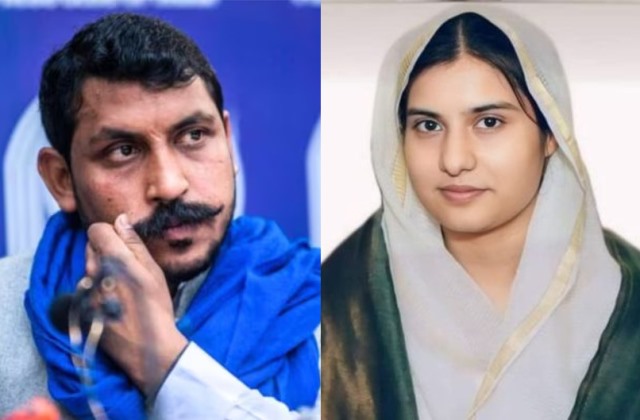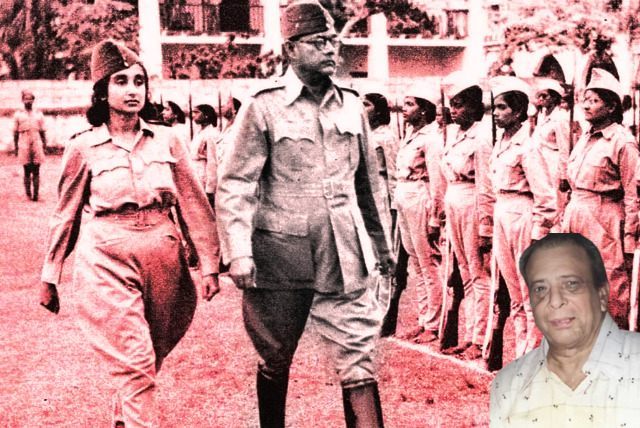
Two Sweet Spots From Sugarcane Belt
It was a cold December morning of 2019. The non-violent Shaheen Bagh protests in Delhi had just begun, and rapidly spreading across the nation. Mothers and daughters were leading this peaceful sit-in, and it went on for four months, night and day, with thousands joining in solidarity. Farmers from Punjab arrived in solidarity. Poets and artists joined in. Men and women from all communities cooked chapatis in a sanjha chulha (community stove).
Posters of freedom fighters were erected: Sardar Patel, Sarojini Naidu, Ambedkar, Gandhi, Bhagat Singh. A make-shift children’s library was created – aptly called the Fatima Sheikh-Savitribai Phule Library. The place resonated with a pulsating energy of great humanism, and incredible, stoic resilience.
Historian Romilla Thapar arrived, smiling, as vibrant as always. Her presence was a morale booster. Especially for teachers and students. In an essay, ‘Voices of Dissent’ (Seagull Books), she travels through a historical terrain of creative dissent, tracing the cultural and social rebellion celebrated by the Bhakti movement, among others, in the 15th and 16th centuries. She writes about the Mahatma’s satyagraha, and finds a synthesis with the Shaheen Bagh protests, which rocked the country.
In an academic meet in November, 2019, held at Cambridge University, UK, Romila Thapar backed the concept of dissent and argued that civil society should set up many more dissenting groups.
She said: “Let’s not forget that if there is anything that history teaches us, it is that regimes that are in some way wishing to control society, more and more, do eventually meet up with dissenting groups. And what we are really waiting for at the moment — given the huge spread of Right-wing politics all over the world, and politicians wanting more and more control over society — is dissenting groups to come up, and say, ‘No, we don’t accept this. We will oppose it in a particular way’. It is crucial in today’s world. We have to look for it. All this relates to things like civil disobedience.”
Bhim Army chief, Chandrashekhar Azad was doing precisely that on the winter morning of December, 2018, in Old Delhi, next to the historic Jama Masjid, even while the cops were out looking for him. He wore a blue hoodie. He dodged the cops.
Azad joined thousands of peaceful protesters on the steps of the Jama Masjid, the people shouting slogans, wearing black bands, waving flags. The atmosphere was charged with ‘Jai Bhim’ slogans.
The Delhi Police had said no to a march led by him against the polarising CAA, from Jama Masjid to Jantar Mantar. Azad posted a defiant tweet: “Please ignore the rumours of my arrest. I am reaching Jama Masjid.”
Azad read out, loud and clear, the preamble to the Indian Constitution; people joined in unanimous chorus. This became live on television and social media.
Significantly, Azad has won the Lok Sabha 2024 election from Nagina in Western Uttar Pradesh, with a margin of 1.5 lakh votes, defeating his BJP rival. With a strong population of Jatav Dalits, and the help of Muslims and other communities, he has consolidated a formidable support base in this entire neighbourhood. The farmers in Western UP are already up against the BJP. And, with the Dalits too joining them, the Hindutva forces are on a backfoot.
ALSO READ: Muslim Underrepresentation In Lok Sabha
Besides, in an era marked by the brazen opportunism and sharp decline of Mayawati and the BSP, the rise of Azad marks a turning point in Dalit politics, especially in the Hindi heartland. This is significant because the BSP does not have a single MP in the current Lok Sabha. And Azad is going to be a crucial Dalit voice from UP, where the BJP has got a drubbing of its life.
But, it has not been an easy political journey for this young rebel. Azad is a law graduate. He founded the Bhim Army in 2015, and worked for the social awareness and upliftment of Dalits. He gave the Dalit educated youth the power of self-respect, so that they could be proud of their identity.
In 2017, he was sent to jail. Why? This is because the Dalits of Saharanpur in Western UP, close to Azad’s home, sick of the everyday humiliation, put up boards outside their homes, proclaiming: ‘The Great Chamaar’. The upper caste groups objected violently. They asked them to remove the boards. The Dalits, especially the youth – refused.
Azad was given bail in November, 2017. And, then, imprisoned again under the draconian National Security Act. At that time, this reporter visited Saharanpur and reported on a protest meeting of Dalit youngsters. They seemed fearless.
In his home at Chhutmalpur nearby, his mother was brave and stoic, and equally fearless. She said that she had visited her son in jail who told her, “Don’t cry mother. If you become weak, how can I fight this big battle of self-respect – against the mental shackles of slavery?”
Western UP has marked a turning point in recent times, and political equations have changed in this fertile sugar belt drastically. This is more so because the farmers’ struggle here, as in Punjab and Haryana, has forged a formidable unity among communities which decisively defeated the diabolical designs of the BJP. Besides, the BJP has never been a strong force here. Their support base was restricted to the traders and small businessmen.
In a green revolution belt, where canals flow, strewn with an expanse of yellow mustard flowers, the smell of melting jaggary sweetens the air, and stays inside the taste-buds for a long, long time. People live slow and steady, they are laid-back and sweet, and they love sweets as much. This was always a peaceful place, and brotherhood was a bond much cherished.
Until the arrival of the cruel autumn of 2014. That marked a sinister and sad rupture.
Hindutva forces reportedly ‘engineered’ bloody riots and effectively destroyed the social fabric of this peaceful zone. The fake news of ‘love jihad’ was manufactured. BJP leaders organized ‘Mahapanchayats’, raising inflammatory slogans. Vicious rumours were floated. Fear and violence stalked the land.
Scores were killed. Women were allegedly assaulted. Thousands became internally displaced and homeless, compelled to take shelter in refugee camps. Predictably, the Muslims suffered the most. Western UP, around Saharanpur, Muzaffarnagar, Baraut and Meerut, had never seen anything like this before. This was unprecedented.
That is why, along with Azad, the victory of Iqra Hassan, 27, from Kairana in this area, sends a strong signal. Both Hindus and Muslims voted for her overwhelmingly, as she defeated her BJP opponent in a tough fight, on a Samajwadi Party ticket. Ironically, the biggest rabble-rouser of the BJP, and a key protagonist during the conflict in 2014, Sanjeev Balyan, lost in Muzaffarnagar.
A Masters in International Politics and Law from the SOAS University of London, polite, balanced and measured, Iqra Hassan belongs to an eminent family of Kairana; both her mother and father have been parliamentarians. Besides, the ‘Kairana Gharana’ represents the famous tradition of Hindustani classical music, which inspired the likes of legendary musician, Bhimsen Joshi.
Like Rahul Gandhi, Iqra took up the cause of the Indian Constitution, and asserted again and again, that if the BJP cames to power, it would be under serious threat. She cited the ‘400 paar’ slogan of the BJP, and declared that this was nothing but a diabolical ploy to eliminate the essence and spirit of the Constitution. She struck a chord with the masses.
Among others like them, Iqra and Azad are the young messengers of subaltern hope. Against the politics of injustice, vengeance, mob-lynchings, ED raids, violence and hate, they bring forth refinement, resilience and enlightenment. Truly, they are the new leaders of ‘New India’.
For more details visit us: https://lokmarg.com/
Amit Sir’s story does a great job of explaining the recent political changes in India, particularly in Western Uttar Pradesh. It shows how peaceful protests like the one in Shaheen Bagh are linked to India’s long history of fighting for justice. The stories of Chandrashekhar Azad and Iqra Hassan are particularly persuasive. They represent a new wave of leaders who stand against divisive politics and fight for unity and equality. The article is both informative and uplifting, encouraging readers to support efforts towards a better society.Keep it up sir…
Interesting spotlight on the politics of UP’s sugar belt. Azad is indeed a charismatic, young and muscular Dalit leader who is replacing Mayawati and her politics of compromise. He holds out promise, as does the vote for Iqra Hasan. How much of a challenge they can be to the BJP in UP remains to be seen.



